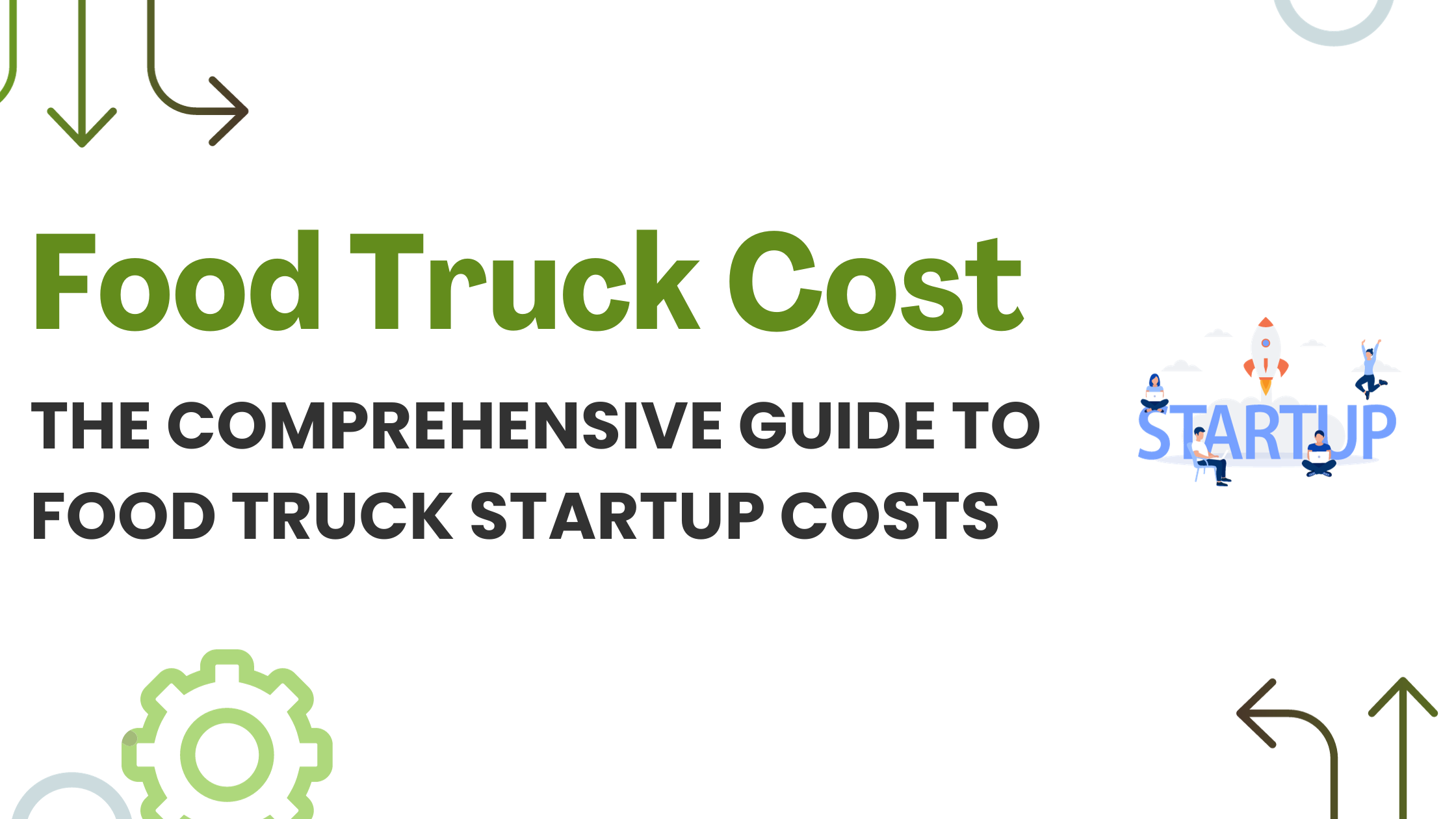
Starting a food truck business can be an exciting adventure, but it requires careful planning and budgeting. In this comprehensive guide, we'll explore the startup costs associated with opening a food truck business, providing proven data and insights to help you plan.
I. What are the startup costs for a food truck?
Starting a food truck business may seem like it requires less capital than opening a traditional restaurant, but upfront costs can still add up. Here's an overview of what you should expect to spend:
1. Purchasing or leasing a food truck: Costs range from $15,000 (used) to $200,000 (new) or $2,000 - $3,000 per month for leasing.
2. Obtaining licenses and permits: Costs range from $100 to $1,000 for food service licenses, with additional permits and licenses as needed.
3. Designing and branding the truck: Costs range from $2,500-$5,000 for custom wraps or $5,000-$15,000 for custom painting.
4. Acquiring necessary equipment and appliances: Costs range from $20,000 to $40,000 for cooking and food storage equipment.
5. Setting up a point-of-sale (POS) system: Costs range from $1,000 to $3,000 for efficient transaction processing.
In addition to these expenses, consider other miscellaneous costs such as legal fees, accounting fees, insurance, and marketing materials, which can add up to approximately $5,000.
II. What would be a fixed expense for a food truck?
While some expenses are one-time, others are ongoing and considered fixed. Here are the main ongoing expenses for a food truck:
1. Insurance: These costs include liability insurance ($1,000-$1,500 annually) and vehicle insurance ($3,500 annually).
2. Permits and licenses: Health department permits ($100-$1,000 annually) and business licenses ($50-$400).
3. Vehicle permits and registrations: Costs range from $100 to $1,000 per year.
4.Truck maintenance and repairs: Budget around $500-$750 per month.
5. Storage space or commissary fees: Costs range from $500 to $1,500 per month.
III. What are the variable costs of a food truck business?
Variable costs change depending on the level of business you have. Here are some variable expenses to consider:
1. Food costs and inventory management: Food costs can range from 25% to 35% of your revenue. Effective inventory management is crucial.
2. Fuel and energy costs: Monthly fuel costs range from $500 to $1,500.
3. Employee wages and payroll taxes: Budget for an average hourly cost of $12 to $15 per hour, plus payroll taxes.
4. Costs vary depending on your target audience and chosen marketing channels. Don't forget that there are plenty of free options that anyone can do to get your business started, such as leveraging social media platforms, setting up a website, attending local events, or partnering with other businesses for cross-promotion.
IV. How much should you invest in a food truck?
The amount you should invest in your food truck business depends on various factors, including location, menu, and equipment. Here's a general guideline:
1. Consider location and target market demographics, competitor analysis, desired features, and marketing expenses.
2. Estimate your total investment by adding up initial expenses, monthly fixed expenses, and variable costs.
For example, assuming a used food truck, the estimated total initial investment would be approximately $54,000.
3. Ensure you have at least six months' worth of working capital for a smooth start.
V. Available financing options for food truck businesses
If you don't have the full amount saved to start your food truck business, don't worry. Financing options are available, such as business loans from traditional banks or online lenders, financing through vendors, or personal loans.
Conclusion
Starting a food truck business can be a profitable and rewarding venture. With careful planning and budgeting, you can confidently navigate the startup costs and ongoing expenses. Remember to customize your budget to your unique needs and make savvy decisions to serve delicious food to satisfied customers from your own food truck.
Additionally, considering utilizing a commercial shared kitchen space, like the ones offered at Prep Kitchens, can provide various benefits such as cost savings, access to permitted space, guidance and support, and a marketing platform. As mentioned in their blog post, using a shared kitchen can significantly reduce startup costs and increase your chances of success in the food industry. By optimizing your food truck business with a shared kitchen space, you can capture more customers, improve operational efficiency, and maximize your profits.
So, if you're ready to launch your food truck business, don't forget to explore the advantages of shared kitchen spaces. Discover the opportunities that Prep Kitchens offer for aspiring food entrepreneurs and start your journey towards a successful and thriving culinary venture.
